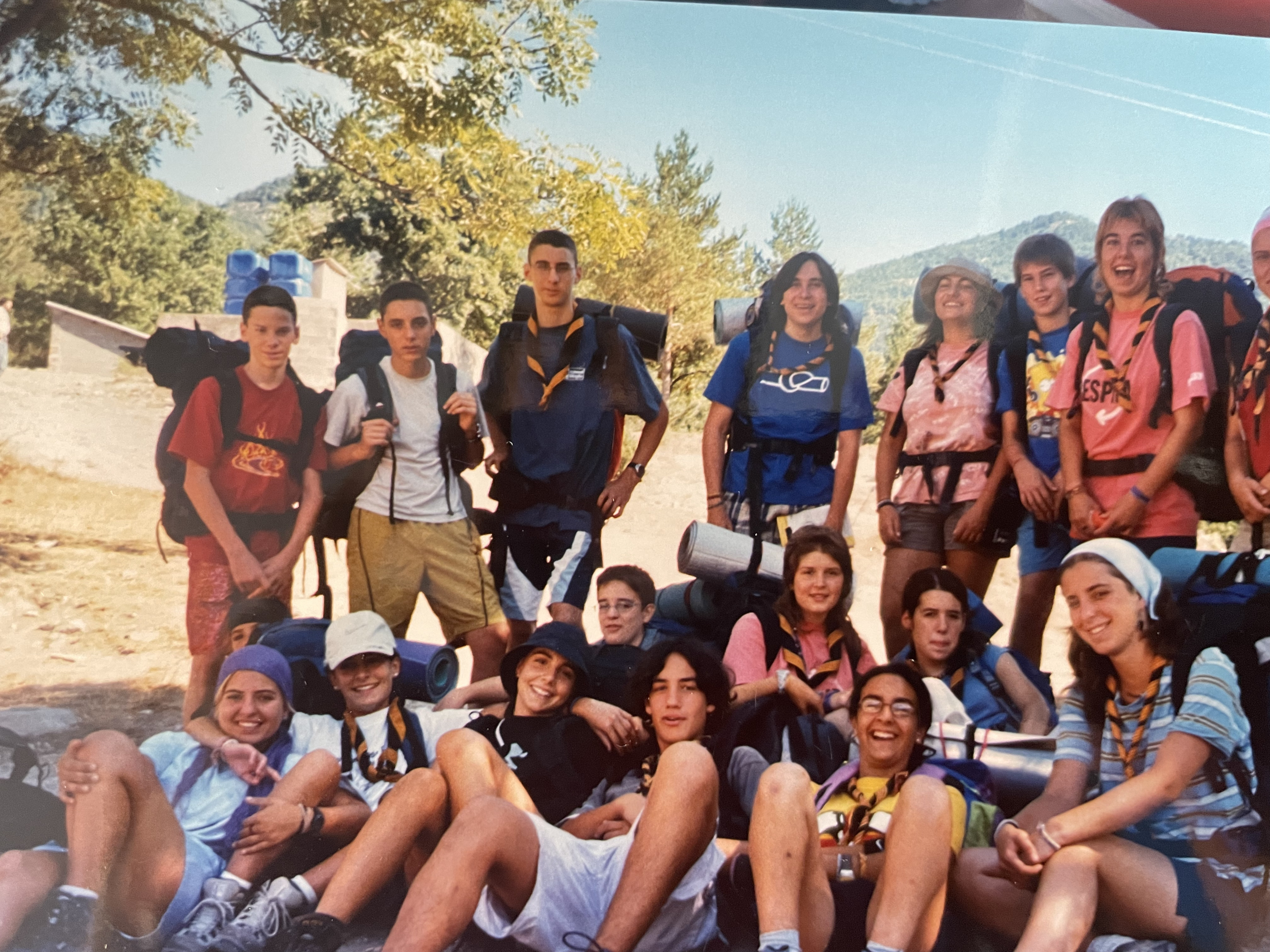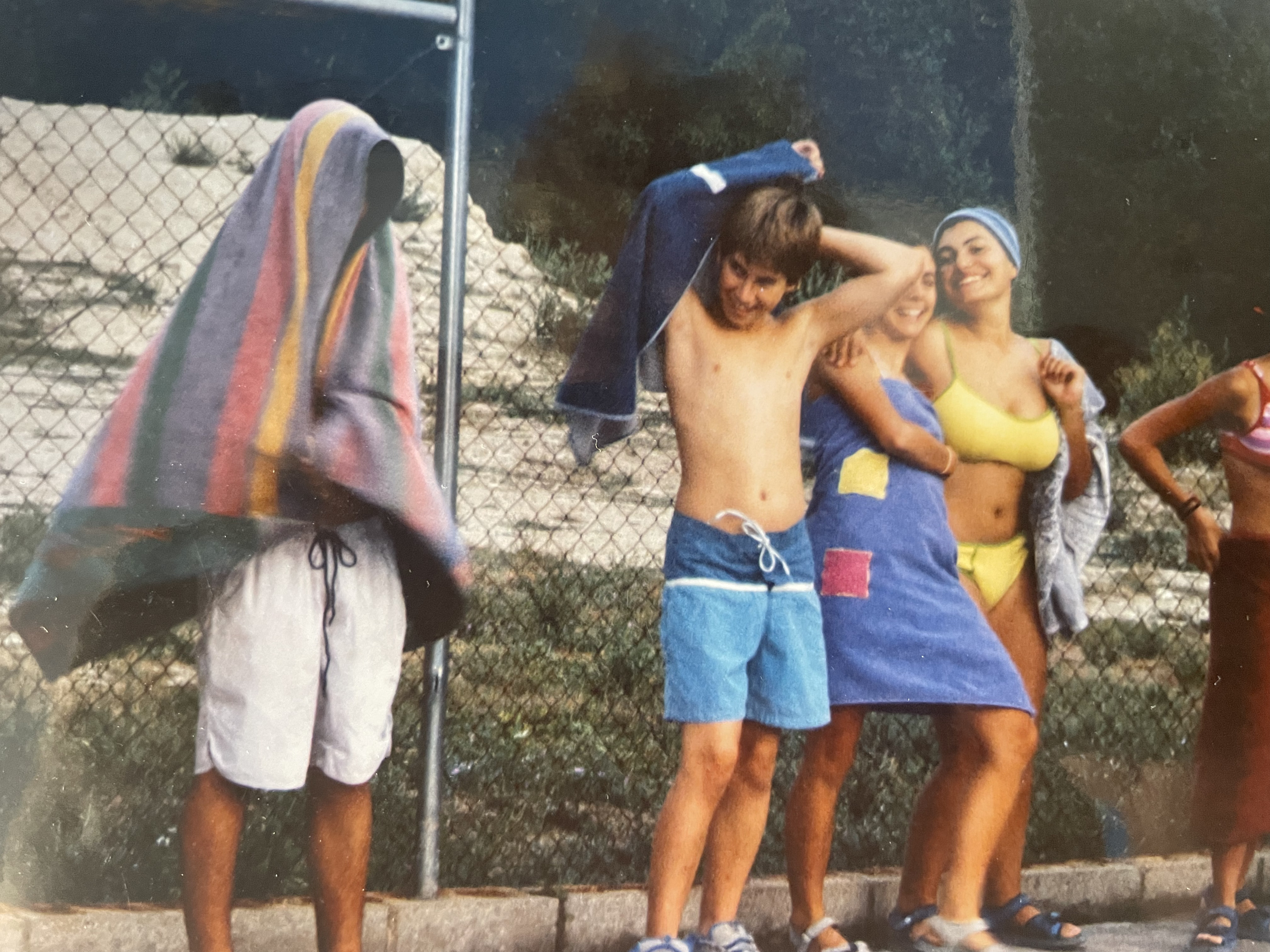What is learnt on summer camps

Source:Federico Davicino
In this op-ed, author Federico Davicino shares a heartfelt reflection on the transformative power of summer camps, drawing from his extensive experience as both a participant and a leader. Could a summer camp be the key to unlocking a child's potential for growth and self-discovery?
Views
What is learnt on summer camps
By Federico Davicinoweb only
When I was a kid, I would go every year on summer camps with the kids of my town. Every 1st of August, all the kids would gather around the main square of the little town that I grew up in and hop on the bus, while the parents waved us goodbye.
 (Source: Federico Davicino)
(Source: Federico Davicino)
I remember going to camps as a very exciting adventure. Every year, we would go to different places. The little kids would stay in a farmhouse in the alpine provinces of Spain, and the teenagers would set up camp in the forest nearby. We made our own fire, cooked our own food, and often went on 3-4 day hikes up the mountain, carrying water, tents, and everything we needed for the trip.
As I grew up into my early 20s, I started volunteering in the same summer camp organization where I had spent many summer camps of my life as a kid. We were a team of very motivated young people who truly believed that our work as summer camp counselors could change the world. We believed that generosity is contagious, so maybe the kids that we spent so much time with, one day might grow up to be generous adults, good to each other and good to the environment.
Maybe not change the world, but change the life of a kid one at a time. We spent months preparing summer activities, going to the mountain to survey the terrain, walking the hikes that we were planning to do with the kids to make the maps even more complete, looking for emergency rain shelters, and hiding clues for scavenger hunt games. I think probably we had as much fun preparing camps as running them while the kids were there.
In those years, while having the time of my life running and preparing camps as a young adult, I also realized how much kids could change in the span of a few weeks and how important it was for their development. You see, the camp environment is completely different from home. Kids had to do their chores around the farm stay or campsite, learn how to cook, fold their beds, make a bonfire, and get oriented in forests. They didn’t have parents or nannies to take care of them, so they grew independent and learned how to take care amongst all the kids. Nothing like getting out of the daily life routine and comfort zone for a week, and kids would return home like almost a new person. New skills learned and a sudden flair of self-confidence on being able to fend (a little bit) for themselves.
Later in life, as I grew into my middle twenties and left Spain to explore the world, I had the chance to work in different summer camps around the world. Sometimes teaching professional sailors of the sailing team, sometimes teaching absolute beginners who had never been on a boat and are scared of water. I worked in high-end rich kids camps and in neighborhoods at risk of social exclusion, and in all cases, I drew the same conclusion. No matter the cultural background, family resources, or the complexity of the activities of any camp, it is always a positive experience for the kids, giving them a boost of self-confidence and independence.
In my thirties, I started to run my first camps in Taitung Sailing School, and I was as excited as anxious to do something like this.
Of all these years myself as a camper or a camp instructor, I had a pretty clear idea of the dos and don’ts, the things that I liked and the ones I wanted to make different. This summer 2024 is going to be my 5th year running sailing camps on the east coast of Taiwan, and I am absolutely amazed by the results of these years.
 (Source: Federico Davicino)
(Source: Federico Davicino)
I feel that the world has changed quite a lot since I was a kid or a young instructor. Back in the day, there were no cell phones or social media, no news means good news. Parents trusted us with the kids for a full two weeks on the mountains, and we would send a scout every 2-3 days to the nearby phone booth to tell one of the parents that we were alright. Nowadays, I feel that if there are no pictures uploaded on Instagram morning, noon, and dinner, we start getting phone calls from the parents concerned about their kids' safety. I also remember the excitement of getting home and bringing the camera roll to print. 35 pictures per roll meant that you had to pick your moments to share them with your parents. Now I have a professional photographer that follows the kids around to take pics and vids on every angle on every activity so no moment is missed.
However, despite the fast pace of change, I still choose to do some things the old ways. I do not allow kids to bring their phones to camps. It is a healthy disconnection from the virtual world and also encourages them to strike conversations with the other kids. There is no better feeling than getting to know your friend around the magic of a bonfire, without any glowing devices around. Kids share the room with other kids, sometimes it might be a friend from school, sometimes a complete stranger, that is a great way to get to know new people and new ideas. Kids need to do their own chores, such as hanging their wet clothes, washing the dishes, and helping to prepare food. It is a great way to become a little independent human, and being able to do things on their own gives them the feeling of independence and self-reliance. And lastly, parents are not allowed to visit or contact the kid during camps (except emergencies of course) because we believe that it is important to respect the process. From the first days of missing home to slowly breaking out of the cocoon and making new friends, summer camps are a very important part of the growth and development of the kids, and parents need to respect them and give them space to become their own person. I have realized that it is also very positive for the parents too.
So yeah, summer is fast approaching. Have you thought about what to do for summer holidays? Whether it be climbing mountains, circling the island on a bike, or sailing camps in far away Taitung, moms and dads can choose to do their favorite activities. However, that is maybe not the most important point.
Letting the kids be away from home for a little while and you might receive back a completely different person. A kid that knows how to clean the dishes, fold their own clothes, independently get ready for the day, and make a bonfire with a bunch of sticks. An independent, confident little human that has been away from home for a few days and knows that they can fend for themselves.
(This piece reflects the author's opinion, and does not represent the opinion of CommonWealth Magazine.)
Have you read?
Uploaded by Ian Huang






